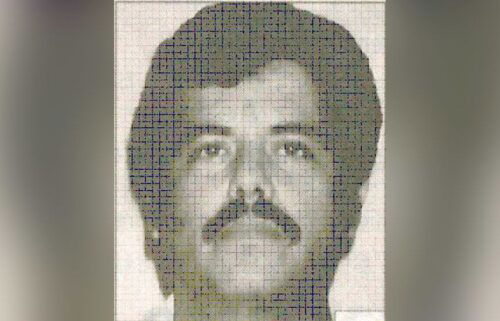Looking deeper at behavioral health: New Mexico AG and experts discuss public safety and access
LAS CRUCES, New Mexico (KVIA) -- In the Land of Enchantment, mental health has been a concern for sometime. In 2020, 18% of adults had a history of depression, many felt frequent mental distress -- 1 in 6 youth experienced a depressive episode.
Serious mental illness is another major concern, and New Mexico had the fourth highest rate of suicide in 2020, all this according to state data.
Questions about access to care, intersections of law enforcement and behavioral support have long surrounded these discussions in New Mexico and across the country.
Today, a summit hosted by New Mexico Attorney General Raúl Torrez has gathered in Albuquerque to look at the many different aspects of trauma, treatment and public safety. By gathering experts in multiple fields, the summit hopes to highlight the needs for improvement for both mental and behavioral health in the state.
"The Trauma Treatment and Public Safety Summit is the second event in a series of public safety summits that Attorney General Raúl Torrez has convened," the NMAG's office said in a release. "This summit is an opportunity to have an honest and open conversation about the state of treatment and how it interplays with public safety. Results from the summit will be presented to leaders in Santa Fe before this upcoming legislative session."
In particular, the second panel "Pathways to Healing – Challenges and Opportunities for Improving Access to Mental Health, Behavioral Health, and Substance Use Disorder Treatment," included researchers and professionals on the ground from across the state. These experts have worked in rural communities, Tribal lands and urban centers -- and reflected on the issues that face the state.
Bureaucracy, lack of communication between groups, business enviorments, low pay, burnout of providers and law enforcement officers were all noted as obstacles by the panel.
Many of the panelists had years of experience in New Mexico's behavioral health systems. Concerns about attitudes to mental health were a topic early in the discussion, about how behavioral health may be treated differently from physical health concerns.
Discussion also touched on past models for setting up mental and behavioral support centers. Several panelists described a model that was created in the 1960s which would offer support in one central location. However, there were concerns about how well that was utilized, and if the patients in need of this support the most were actually able to obtain it.
Several experts, including Dr. David Ley, the president of the New Mexico Behavioral Health Providers Association, highlighted conflicts between the existing system and providing support to those who need it the most. He said that because of the way payment is provided to trained experts, it prioritizes those who can afford to obtain it.
Dr. Melissa Riley, with the NMHU Native American Social Work Studies Institute, said that in many Tribal villages, there is not consistent internet access -- meaning issues with telehealth. She said some folks do not even have consistent usability of cell phones. As a result, looking at diverse resources for rural communities via service providers could be a benefit.
She says in Alaska, some Tribes are asking their dental techs to offer behavioral health support as few highly-educated individuals may be available. She says this is a positive, not a negative. By asking Tribal leaders to act as mental support -- as folks well respected in the community -- can actually improve care access.
However, in more urban areas the idea is that only highly trained and over qualified individuals could offer support, she says. Dr. Riley is also very concerned about over dependence on prescriptions, heavy caseloads.
Dr. Ley hopes that telehealth can combine the most experienced with the neediest in areas across New Mexico in the future. He feels attitudes must change so that steps are taken to address the existing demands, instead of adhering to decades-old systems.
Phil Huston, of the Carlsbad Lifehouse, said peer support has worked very well in his clinics. These folks, often without very high degrees, but experience and dedication -- can make a major impact with the communities they're trying to serve.
He notes that many areas outside of Albuquerque have a limited number of trained professionals, but the reality is that waiting-lists can be years long.
Questions from the audience were raised about how spending requirements get in the way of work being done.
Avery Martinez covers mental health in the Borderland as part of ABC-7’s Be Mindful initiative. He is also a Report for America corps member. RFA places talented, emerging journalists in newsrooms like ABC-7’s to report on under-covered issues and communities. Report for America is an initiative of The GroundTruth Project, an award-winning nonprofit journalism organization dedicated to rebuilding journalism from the ground up.




